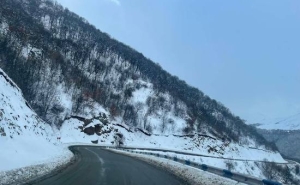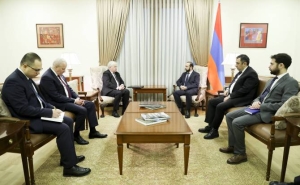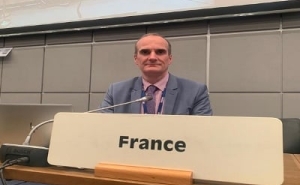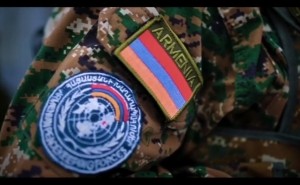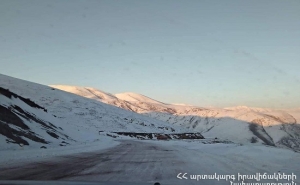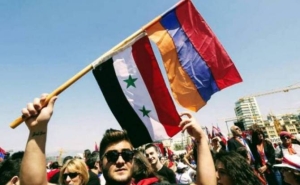Armen Ashotyan: Foreign Policy Is One of the Achilles' Heels of the Current Authorities (EXCLUSIVE)
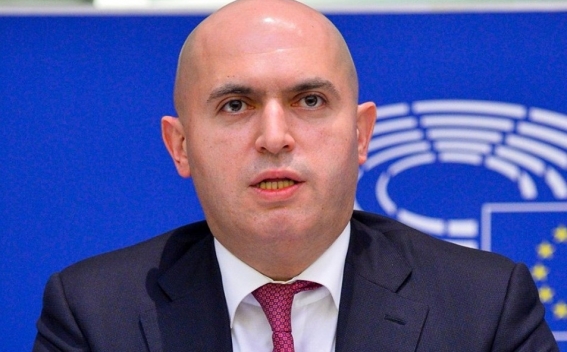
Ahead of RA early parliamentary elections, which will take place on December 9, "Armedia" IAA presents interviews with the representatives of political forces on their foreign policy priorities.
"Armedia’’ IAA presents an exclusive interview with the Vice President of the Republican Party of Armenia (RPA) Armen Ashotyan.
-Mr. Ashotyan, which are the foreign policy priorities of your political force?
Foreign policy is one of the Achilles' heels of the current authorities, especially if we link foreign policy with the settlement of the Karabakh conflict. Armenia's foreign policy must be aimed at strengthening the security environment around Armenia and Artsakh; it is crucial for us.
For a country like Armenia, foreign policy is one of the most important constituents of the security policy. And here over many years the achievements of our party are so indisputable, that even the current authorities have constantly said that will continue the foreign policy led by the Republican Party of Armenia. We do not want to turn Armenia (which we have managed for many years) into a platform of superpower clashes. We do not want to turn Armenia into a geopolitical watershed border. During our thousand-year history, these mistakes have been repeated many times, and we have always been divided between east and west, north and south. Then the political elite allowed the superpowers to fight with each other on the territory of Armenia. The 21st century is not calm, too , especially today. The region adjacent to us— the Middle East with its Syrian crisis, the Iranian problem, the aggressive Turkish policy, the threats of Azerbaijan against Armenia and the Armenians — all of this does not give us the right to lose vigilance. And we are concerned over Armenia's security, we are concerned over the future of Artsakh. The legacy we left in the field of foreign policy is being squandered by the current authorities. There is not only a serious progress in the relations with Russia, in the process of Eurasian integration, and in the relations with the European Union, and with Iran and Georgia, but there are also presuppositions of the systemic crisis.
-Which are your approaches to integration processes in Armenia?
-Armenia should not only fulfill its obligations before the international community or integration unions, but should also make the best use of its rights. This is our main approach. Armenia needed a supranational economic union, Armenia needed a supranational security organization - this is the reason why our positions in the CSTO and the Eurasian Union have been strengthened. Evidence of this facts is Tigran Sargsyan and Yuri Khachaturov. As a result of short-sighted and unprofessional policy, Armenia is in the verge of losing the position of Secretary General of the Collective Security Treaty Organization (CSTO).
It is impossible to conduct foreign policy on the basis of fake revolutionary instruments. Emotions have no place in foreign policy; foreign policy requires intelligence and knowledge - something that the current authorities don’t have in the field of foreign policy.
-What is your vision of the settlement of the Karabakh conflict, what steps should be made in this direction?
-Our vision of resolving the Karabakh conflict has been very clearly implemented over the years. This vision is multifunctional, has many components and is based on the indisputable rights of the people of Artsakh to self-determination. In all international documents, which were adopted by us, Artsakh people's right to self-determination is included as one of the fundamental principles of the Karabakh settlement. Even Levon Ter-Petrosyan admitted that the negotiation options over Karabakh settlement adopted during the presidency of Serzh Sargsyan was the best during the last twenty-five years of the Karabakh settlement.
On the one hand, the populist statements of today's authorities, on the other hand, their recent their recent anti-Karabakh statements simply question the prospects of the strategic alliance between Armenia and Artsakh.
- What should be the priorities of the Armenia-Diaspora agenda?
- Our Diaspora is historically formed as a result of the black pages of our history - genocide, massacres and pogroms. Today, the Diaspora has become one of the advantages of Armenia. Armenia with Diaspora and its potential is one country, and without a Diaspora it is a completely different country.
Of course, on the one hand, we must encourage repatriation. We had a repatriation program but today's authorities did not do anything to put this program into practice.
Armenian Diaspora really possesses an enormous political force that can help in the matter of promoting the political interests of Armenia and Artsakh. The Diaspora has a huge human capital, which can bring "fresh blood" into the political, civil, cultural life of Armenia. And these two actions - on the one hand, repatriation, and on the other hand, the preservation of the Diaspora - are quite compatible. Here we need a clever policy.
Other materials on this subject
- The Early Parliamentary Elections' Final Results Resumed Today Head of the Central Electoral Commission Tigran Mukuchyan resumed today the final results of the early parliamentary elections held on 09 December.
- Iran Welcomes Armenian Parliamentary Elections The result of such election will be sign of democratic changes in this neighboring country, he said.
- Georgian President Congratulates Pashinyan over Impressive Victory of "My step" Block in Elections The Georgian President wished success to Nikol Pashinyan in the reform implementation in Armenia, and hoped that the friendly relations between Armenia and Georgia will further deepen.
- Democratic Elections were Held in Armenia: PACE observer group Aleksander Pociej, Head of the delegation from the Parliamentary Assembly of the Council of Europe (PACE), said the 2018 peaceful, “velvet” revolution, in conjunction with the political will of the...
- President Sarkissian Addresses Nation on General Election At the same time, I would like to thank all parties and alliances which participated to the elections, as well as all citizens of Armenia who have expressed their position regarding the future of the country....
-
 17:08
17:08The regular session of the Anti-corruption Policy Council takes place in Jermuk
-
 15:05
15:05The Prime Minister sends congratulatory messages to the supreme leader of Iran and the President of Iran
-
 11:11
11:11Armenia sends earthquake aid to Turkey
-
 10:43
10:43Commemoration of the Pontiff St. Sahak Partev
-
 09:16
09:16Some roads are closed and difficult to pass in Armenia
-
 19:55
19:55Phone conversation of the Foreign Minister of Armenia with the U.S. Assistant Secretary of State for European and Eurasian Affairs
-
 18:30
18:30Prime Minister Pashinyan and President Khachaturyan meet
-
 18:20
18:20Ararat Mirzoyan with Co-Chairman of the OSCE Minsk Group of France Brice Roquefeuil
-
 17:01
17:01Humans could land on Mars within 10 years, Musk predicts
-
 16:45
16:45France, US urge 'immediate' end to Nagorno Karabakh blockade
-
 16:01
16:01Blockaded Nagorno Karabakh launches fundraiser to support quake-hit Syria
-
 15:59
15:59Earthquake death toll in Turkey rises to 18,342
-
 15:43
15:43Ararat Mirzoyan Held a Telephone Conversation with Sergey Lavrov
-
 15:06
15:06French president rules out fighter jet supplies to Ukraine in near future
-
 14:47
14:475 Day Weather Forecast in Armenia
-
 14:44
14:44President Vahagn Khachaturyan wrote a note in the book of condolences opened in the Embassy of Syria in Armenia
-
 14:20
14:20Azerbaijan’s provocations impede establishment of peace and stability – Armenian FM tells Russian Co-Chair of OSCE MG
-
 12:57
12:57France representation to OSCE: Paris calls on Azerbaijan to restore freedom of movement through Lachin corridor
-
 11:40
11:40Command of Kosovo forces highly appreciated preparation of Armenian peacekeepers
-
 10:16
10:16The United States withdrew from sanctions against Syria for six months the provision of assistance after the earthquake
day
week
month
Humidity: %
Wind: km/h


